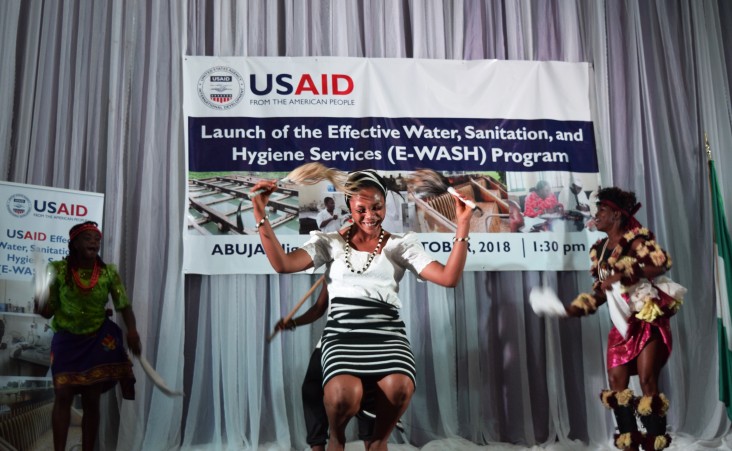Press Release Shim
Speeches Shim

USAID will provide 500,000 families in six states access to a reliable supply of clean, piped water
For Immediate Release
Abuja – The United States government, through the U.S. Agency for International Development (USAID), today launched a new urban water and sanitation activity that will provide 500,000 families in six states access to a reliable supply of clean, piped water, to the benefit of three million Nigerians.
Under the four-year, $60.4 million Effective Water, Sanitation and Hygiene activity (E-WASH), USAID will provide assistance to Abia, Delta, Imo, Niger, Sokoto, and Taraba states to improve the health and hygiene of their populations by improving delivery of water and sanitation services through stronger, better performing state water agencies.
The six states were competitively selected. The selection criteria included the state’s willingness to reform, existing functionality of infrastructure, and potential for positive impact.
“I am confident that USAID, our new partner state governments, collaborative development partners, and the business community, can share our respective expertise, capabilities and resources to develop more professional and accountable water and sanitation utilities,” Haykin said at the launch.
According to the United Nations, about 57 million people lack access to safe drinking water in Nigeria, and each year, water-borne illnesses kill around one million Nigerian children under the age of five. While overall access to improved water has increased nationally in recent years, access to piped water and improved sanitation has decreased markedly in urban areas, suggesting an erosion of utility coverage.
E-WASH will help the six state Water Boards demonstrate that better performing water boards will raise the quality of services for their customers; facilitate economic sustainability; and increase the chance of more fully serving all customers in their areas, including the most marginalized.

Comment
Make a general inquiry or suggest an improvement.